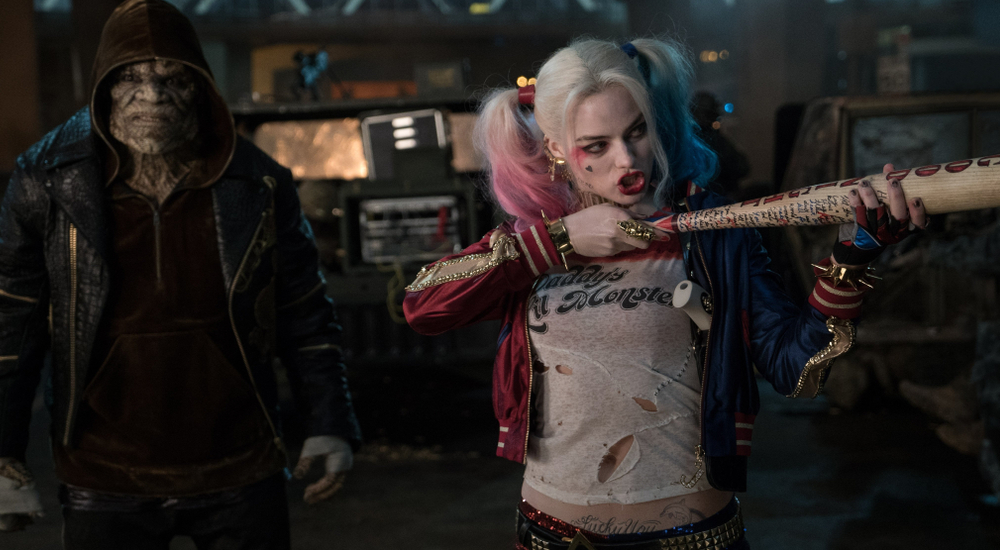Rumor has it that when The Penguin bit off a man’s nose in Tim Burton’s Batman Returns, parents across the nation freaked out, causing Warner Brothers to reconsider the tone of their superhero films. After all, these parents were buying Penguin toys, and they didn’t want their child playing with a character that bit off a man’s nose. So, we wound up with the toy-friendly Batman Forever and Batman & Robin, before even louder outrage—and, more importantly, bad box office receipts—caused the pendulum to swing the other way, giving us the pervasively dark Nolan Batman trilogy.
As apocryphal as this tale may be, it encapsulates the struggle that DC comic films have been locked in for nearly three decades—a struggle between light and dark so never-ending that even their heroes would get exhausted. Nolan laid out the blueprint for making a dark DC film, but now his trilogy is in the rearview, and the DC Extended Universe is off to a rocky start. After the divisive Man of Steel and the corporate shakeup caused by Batman v. Superman, the fate of the universe may rest in the hands of the Suicide Squad. Unfortunately, they’re not up for the challenge.
Suicide Squad is the story of a post-Superman world where concerns about metahuman attacks allow the manipulative government official Amanda Waller (a perfectly cast Viola Davis) to bully the Joint Chiefs of Staff into signing off on the creation of Task Force X, aka the eponymous Squad. This dream team of supervillains includes the assassin Deadshot (Will Smith), The Joker’s beloved Harley Quinn (Margot Robbie), the silly but fun Captain Boomerang (Jai Courtney), the self-explanatory Killer Croc (Adewale Akinnuoye-Agbaje) and the fire-controlling Diablo (Jay Hernandez). The Task Force’s job is to clean up a mess caused by Waller herself, and in the process they bond over their mutual outsider status and general villainy.
For this cast alone, Squad is worth a watch. Unfortunately, the charisma and chemistry that they bring to the table is all but squandered by a convoluted plot and a sloppily designed villain that would be laughable in the animated Ghostbusters series. A movie about bad guys needs a proper, scary villain, and the lack thereof is a glaring hole.
Unlike what conventional wisdom and the film’s omnipresent marketing would have you believe, that villain is not Jared Leto’s Joker. In fact, for all the hubbub regarding the Oscar-winner’s method (and borderline illegal) behavior on set, the most shocking thing about The Clown Prince of Crime is how little of a role he has in the film.
Writer-director David Ayer has gangster-ified the classic Batman villain, adding a plethora of tattoos to his visage, lots of leather to his wardrobe and some souped-up cars to his garage. It’s a risky move that could alienate some diehard fans, and Leto’s performance doesn’t help. This much-ballyhooed Joker is a mix of a cartel kingpin and a teen Goth, and in the little screen time he has, he fails to be anything other than a distraction from the main event.
Maybe we should thank him, though, because the main event isn’t too special. Led by Rick Flag (Joel Kinnaman), the baddies enter enemy territory to rescue someone, then enter even scarier territory to rescue that same someone. Oh, and save the world. If Ayer is secretly parodying action movies, then this film is a rousing success. But if he’s not (and he’s definitely not) then the movie’s adherence to every action film cliché is disappointing. After all, we were promised a game-changing story of “bad v. evil” from the director behind flicks like Fury and End of Watch, and all we get is a milquetoast, slightly racist team-up movie.
Buried somewhere beneath rubble of rewrites, bad CGI and worse slow-mo is a good story, and that story bubbles to the surface every now and then. Whenever Will Smith and Joel Kinnaman share the screen, the connection between the characters makes you forget how poorly drawn they are as individuals. They do their damnedest to rise above the material—as do Robbie, Davis and Hernandez—and a cameo by Ben Affleck (stay after the credits) injects some excitement into this mundanity. But because of the film’s flawed storytelling, they’re all playing with one hand tied behind their back.
No one bites off a nose or does anything else to push the envelope in Suicide Squad, and that’s the biggest problem: you can’t rescue a troubled cinematic universe if you play it safe. As it toes the line between dark drama and lighthearted comic fare, Suicide Squad forgets to decide what it really is. Thus, all it becomes is a disappointment.

